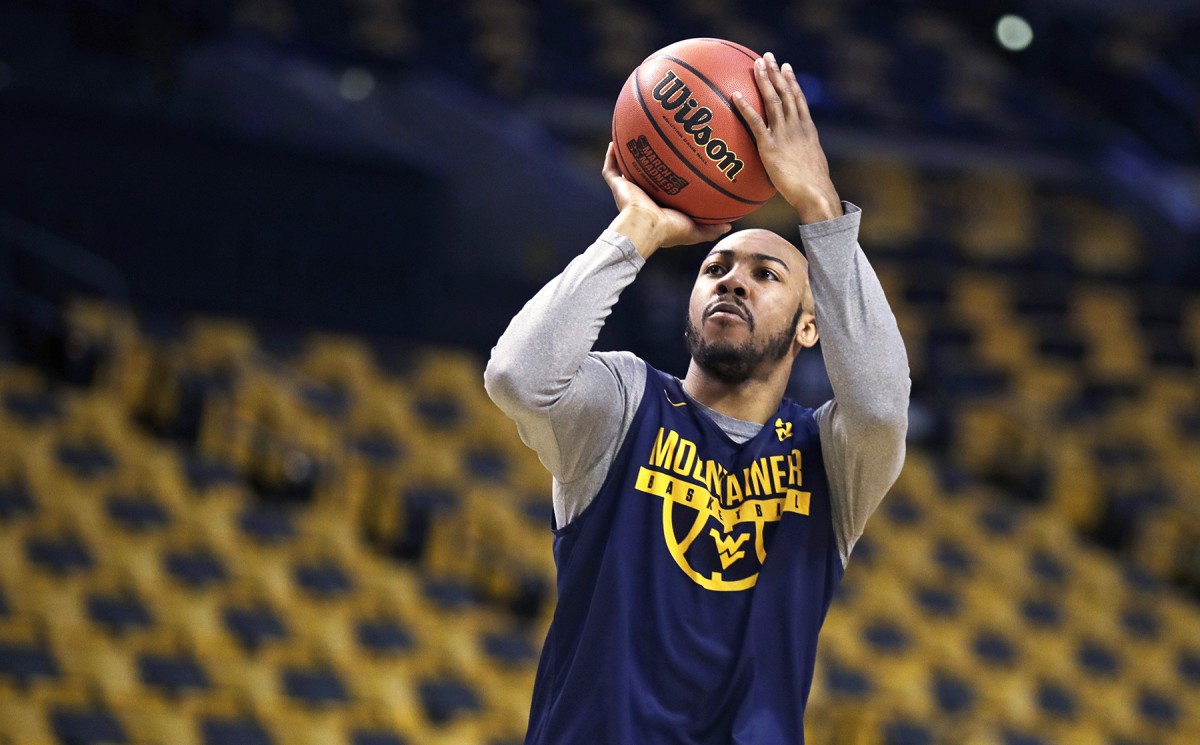BOSTON — The waves of questions came, in lay-up-line succession, about his pending match-up against Villanova’s Jalen Brunson. And Jevon Carter brushed them away with tight, canned responses, unwilling to allow reporters entry into the friendly fire that’s brewing between him and his former AAU teammate.
WVU assistant Larry Harrison was more candid. He divulged that after WVU beat Marshall in the NCAA tournament’s second round, Carter glimpsed ahead to facing Brunson in the Sweet 16 and declared, “I’ve been waiting for this.”
Good friends since their teenage days in Chicago, Carter and Brunson led their AAU team to a national title. (“Teams couldn’t even get the ball past halfcourt,” said their coach, Dickey Simpkins.)
Brunson already owns a national title on the college level, too, whereas Carter has never advanced deeper than the Sweet 16.
Brunson became a five-star recruit and recently made the Chicago Tribune’s list of 50 best Illinois high school players ever.
Carter emerged as a three-star recruit, whose lone major offer came from WVU. Didn’t make the Tribune’s top 100 — or even the honorable mention list, for that matter.
Brunson was named first-team all-American this week by the NABC. Carter settled for third-team.
The chip remains real for the Mountaineers’ senior point guard, who short-sold the Brunson storyline in order to redirect toward his current WVU classmate Daxter Miles. They are four-time NCAA tournament participants, something only five previous Mountaineers accomplished.
“I felt like ever since our freshman year, we’ve always been underrated,” Carter said March 22. “We’ve always been the underdogs coming into any game we’ve played. Me and Dax, we feel like we never got the credit we deserved. We feel like we’re the best backcourt in the nation. But I guess don’t nobody else besides us see us that way.”
WVU (26-10) will be a five-point underdog when it faces top-seeded Villanova (32-4) in TD Garden tonight. That will mark the one-year anniversary of the Mountaineers’ gut-punch loss to another No. 1 seed, Gonzaga. Carter hasn’t forgotten the frenzied final 25 seconds when he badly missed two potential game-tying 3s and failed to orchestrate a third attempt before time expired.
“I think he’s driven by that,” Harrison said. “Him and Dax, they’ve been to the Sweet 16 twice already and they want to get to the next level.”
Beyond Brunson (19.1 points, 4.7 assists) and Carter (17.4 points, 6.6 assists), each roster features an array of difference-makers.
Mikal Bridges, a 6-foot-7 forward who makes 44 percent of his 3s, is one of six double-digit scorers for Villanova, the first team to post consecutive 32-win seasons.
“It gets tougher as you keep winning and winning because it’s hard for you to stay humble and hungry, right?” Bridges said. “We know that ego is our biggest competitor right there.”
WVU generates similar match-up problems through 6-8 Esa Ahmad playing inside-out, and can extend its trapping defense because the nation’s No. 3 shot-blocker, Sagaba Konate, patrols the lane.
“It makes people pull up and shoot jump shots a lot,” coach Bob Huggins said.
Press Virginia, whether it’s the aggressive full-court variety or the three-quarters zone trap, can’t let loose the skilled Villanova playmakers who compose the nation’s most efficient offense.
“A really unique style of play that you don’t see any other time during the year or from any other opponent,” Wildcats coach Jay Wright said of WVU. “We’re going to have to take a punch in the mouth there for a second, and then get ready to adjust.”
Though no one scores more points, Wright’s team is only middle-of-the-pack nationally in tempo (174th per KenPom). That gives WVU hope of feeding its turnover appetite, revving up transition opportunities and spurring Villanova into hurried, reactionary passes — reminiscent of the 19 turnovers it suffered in a Feb. 14 loss Providence
Across their four losses, the Wildcats yielded an average of 86 points.
“I don’t think we want it in the 60s and 70s,” Huggins said. “We’re better when we score, and we’re better when the game’s sped up.”




